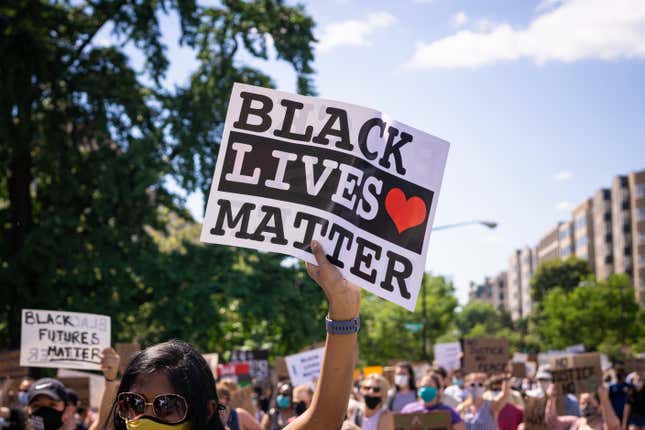
In the fight for racial justice and true liberation, if one of us is not free, none of us are. From fighting for justice in the LGBTQ+ community to fighting for women’s rights, it is important to fight for everyone if we are going to build a truly just and equitable America. One group that is often forgotten though, is Black people with disabilities. But on the 30-year anniversary of the Americans with Disabilities Act, we have decided to take center stage. It’s Disability Pride Month and we are proud to be fighting for justice—for all Black people.
I live at a crucial intersection: I am a Black disabled woman. I have advocated for disability rights/justice throughout my entire career. And still, it remains clear to me that there is much more work to be done to advance and promote equity and accessibility for people with disabilities—particularly for those of us who exist at BIPOC (Black, Indigenous, People of Color) and disabled intersections. Like the 1 in 4 Black adults who have a disability, I can’t silo my experience, as these identifiers do not exist independently of each other.
As the movement for racial justice in America widens, It’s crucial that we recognize the shortcomings of our society when it comes to supporting me and other disabled members of the Black community. Our systems have left out necessary infrastructure and resources to survive; the median adjusted family income for disabled workers has been left at about half of the income of others and, like too many Black communities, voting rights is another frontier where we have seen little improvement over the years when it comes to serving members of the community with disabilities.
But in this moment, most concerning are the dual epidemics of COVID-19 and police violence in Black communities.
Amid the COVID-19 pandemic, which we have all seen disproportionately devastate the Black community, Black people with disabilities are literally being left to die without any assistance. This comes after years of people with disabilities combating attacks from the Trump administration against those of us who are most marginalized. As a full-time wheelchair user who requires daily care from personal care attendants, I have lived through the fight for fair access to healthcare, as have so many millions like me across the country. This has looked like pushing for state and federal intervention as well as media attention for my battles. It has meant being forced to weigh living in a nursing home or living at an institution when I didn’t have a healthcare plan to pay for it.
And these challenges have been my reality in supposedly “good” times. Now, in places like Arizona, one of the states hit hardest by the pandemic, and where I live, we are seeing medical rationing set to devastate disabled people. Living at the intersection, this kind of discrimination is my and many of my friends’ worst nightmare, with some of my community here in the state fearing they’ll fall down the list or be stripped of their lifesaving devices in the event they are not deemed worthy by the state.
To make matters worse, it is well documented that our nation’s police are not trained when it comes to necessary de-escalation and working with people with disabilities. Failures here have led to unnecessary bloodshed and traumatizing episodes. The stats are startling as half of the people killed by police across races have a disability.
Right now, it is critical that we fight for the rights of all, leaving no one behind, as we crusade in the name of Black lives. To honor the 30th anniversary of the ADA, this past weekend, the Crip Camp impact team and Color Of Change held a special two-hour virtual celebration to discuss historic wins and the path forward. This conversation is just the beginning. As Disability Pride month comes to a close, I hope you’ll continue the conversation started in your own city.
Andraéa LaVant is founder and president of LaVant Consulting, Inc. (LCI), a social impact communications firm. She currently serves as the impact producer for Netflix’s feature-length documentary, Crip Camp, where she is charged with leading the campaign’s efforts to promote understanding of disability as a social justice issue and build across lines of difference.

